Discussed in this post: 21 Books (Virtue Hoards; The Revenge of the Real; Undoing the Demos; Capital Rules; A World Without Police; How to Blow Up a Pipeline: Object-Choice; The Hero’s Way; Sync; On Time and Water; Cyclonopedia; The Society of Reluctant Dreamers; Belladonna; The Case Worker; The Death of Vivek Oji; A Touch of Jen; While the Earth Sleeps We Travel; Selected Poems of Langston Hughes; Romanian Poems; Austerity Measures; and Voodoo Hypothesis); 2 Movies (Pig; and The Green Knight); and 2 Documentaries (Framing Britney Spears; and McMillion$).
Books
1. Virtue Hoarders: The Case against the Professional Managerial Class by Catherine Liu.
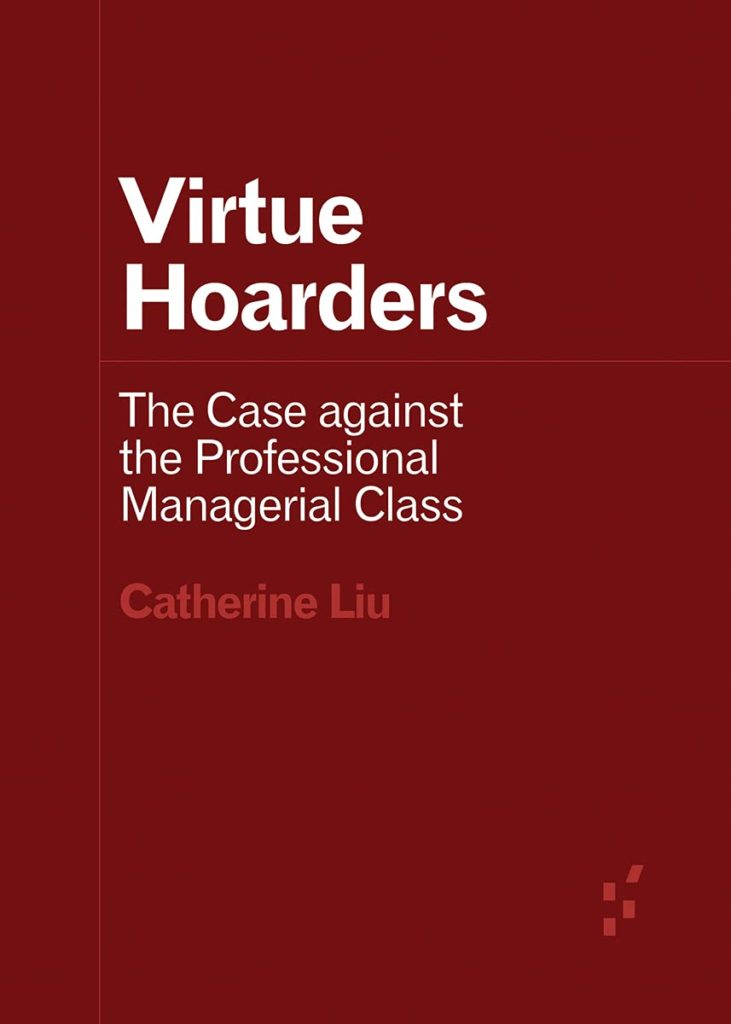
One-half tankie and one-half Bernie bro, Catherine Liu’s idea of polemics seems to come from following twitter exchanges or watching rap battles on Youtube. A good burn does not a polemics make. And a lot of these burns aren’t even good. A lot of them are incoherent and lack a clearly defined target. (Who, exactly, is the “professional managerial class” targeted by Liu? Apparently, members of some ill-defined upper-middleclass Liberals who exist in some kind of proximity to politics and education and who hold views different than her own.) There’s a lot of name-calling. Opponents are accused of being panicked, paranoid, rigid, dishonest, and as those who “love to weaponize outrage,” and those she supports are constantly called “clear,” “even-handed,” and believers in “robust debate.” Not a lot of evidence is offered either way. Because polemics, I guess?
It’s atrocious because Liu’s intent, for a large portion of the work, is to double-down on defending rape culture and White supremacy within American Universities and American history. (As if one has to pick and choose between fighting neoliberal economics and fighting rape culture and White supremacy? As if all three aren’t intimately entwined?). I mean, yes, be outraged by Liberal virtue signalling and the absolute betrayal of the impoverished by the Liberal elite but, come on! You can still care about economics without also rushing to defend rape apologists and a bunch of old White men. Liu can’t see that her brand of “socialism” is just as deeply reactionary as that of the Liberals whom she detests. Classic tankie. Classic Bernie bro.
But it’s also a real missed opportunity. Because the Professional Managerial Class (PMC) really does play a critical role within the proliferation, normalization, and rationality of neoliberalism. And the ways in which the PMC hoards virtue is a real significant element of its success. Liu starts of well in this regard and then loses her way. In part, I think, because she misses the role played by the bureaucrats behind all the Liberals engaged in virtue-posturing. Look beyond the profs and examine the University administration. Look beyond the elected politicians at the paid staffers in a municipality or province or State or nation. Look at who enforces international trade agreements. You won’t find any of that here. I’m hoping to find something better in Thomas Klikauer’s Managerialism: A Critique of an Ideology.
2. The Revenge of the Real: Politics for a Post-pandemic World by Benjamin Bratton.
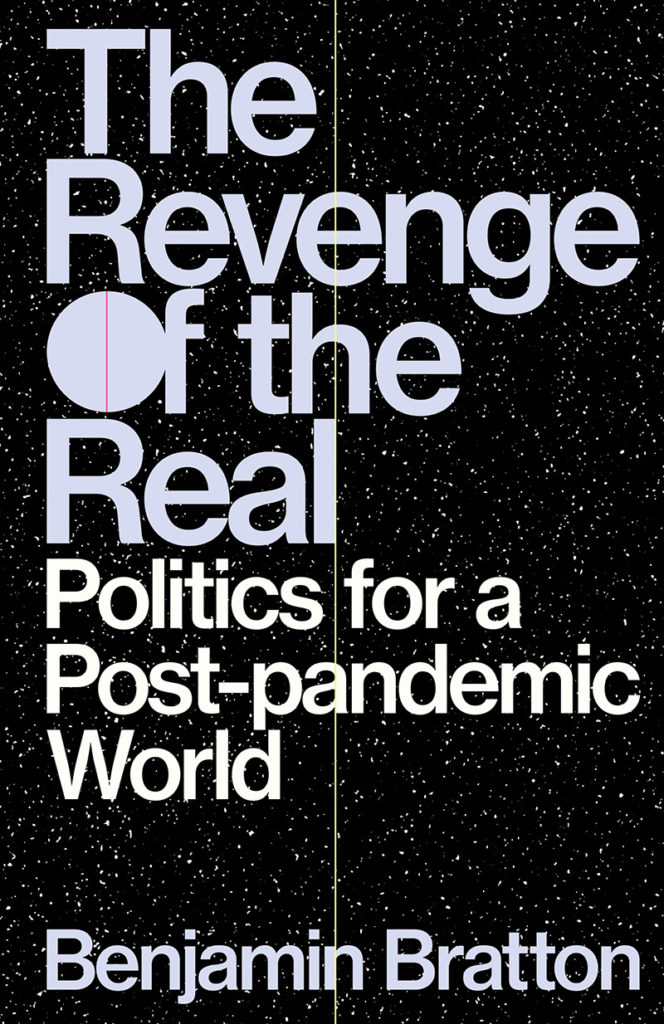
Okay, Leftists, Imma let you finish but what if, instead of criticizing all the ways in which we are oppressed by power hierarchies that exploit technological innovation to further heighten our oppression, what if we just used all that power for good? That would be fucking awesome! We could solve so many problems! This pandemic wouldn’t even be an issue! You’d have to be a total fool to think otherwise!
And, for what it’s worth, that is the gist of Benjamin Bratton’s argument in The Revenge of the Real. I picked the book because I read Bratton’s takedown of Agamben after Agamben purchased a one-way ticket to Bonkersville when the pandemic hit (see here) and I mistakenly thought Bratton had something thoughtful to add to this conversation. It’s truly remarkable that a critical theorist can make this kind of argument in light of all the ways that theory, far from remaining strictly rooted in the domain of discourse (which, according to Bratton, has entirely lost its connection to “The Real”), has had all kinds of practical and significant things to say about power formations and what they do to all of us.
Well actually, Bratton says, the rest of you just need to read Foucault better. To which the rest of us respond by saying LOL!
3. Undoing the Demos: Neoliberalism’s Stealth Revolution by Wendy Brown.
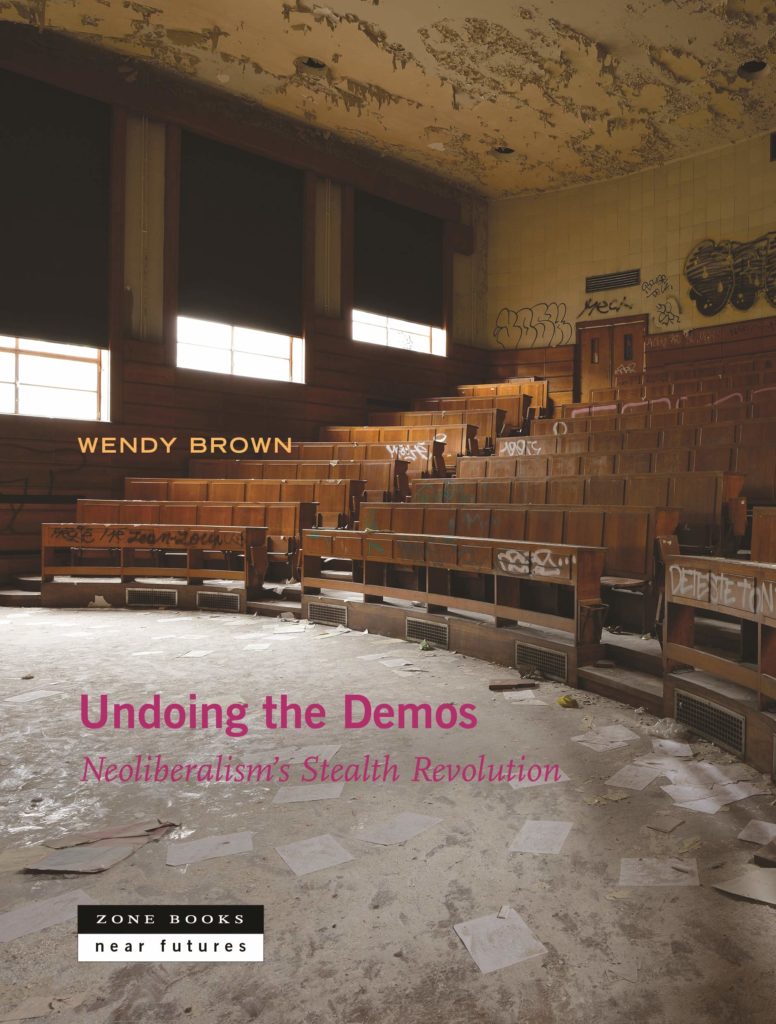
Wendy Brown reminds me of Jacques Rancière. Both of them have taught me that the ideas, values, and practices of democracy run much deeper, and are far richer, than the form of so-called “representative democracy” that arose in Europe (and then in European colonies or supposedly “post-colonial” States) after the bourgeoisie betrayed the proletariat when the rule of the titled aristocracy collapsed. Democracy, in this tradition, is hardly different than the self-organizing, collective empowerment, horizontal networking, and dignified mutual care encouraged by anarchism. It’s really too bad that bougie Liberals have so overrun the discourse of democracy. Wendy Brown reveals how lovely it can be.
She also reveals just how anti-democratic neoliberalism is. Here, her work inspires and dovetails well with the work of Pierre Dardot and Christian Laval. She was really ahead of the curve in showing how this works (even if she modifies her own thesis in her more recent work, In The Ruins of Neoliberalism). Of all the scholars I have been reading on this subject, she is one of my favourites. Highly recommended.
4. Capital Rules: The Construction of Global Finance by Rawi Abdelal.
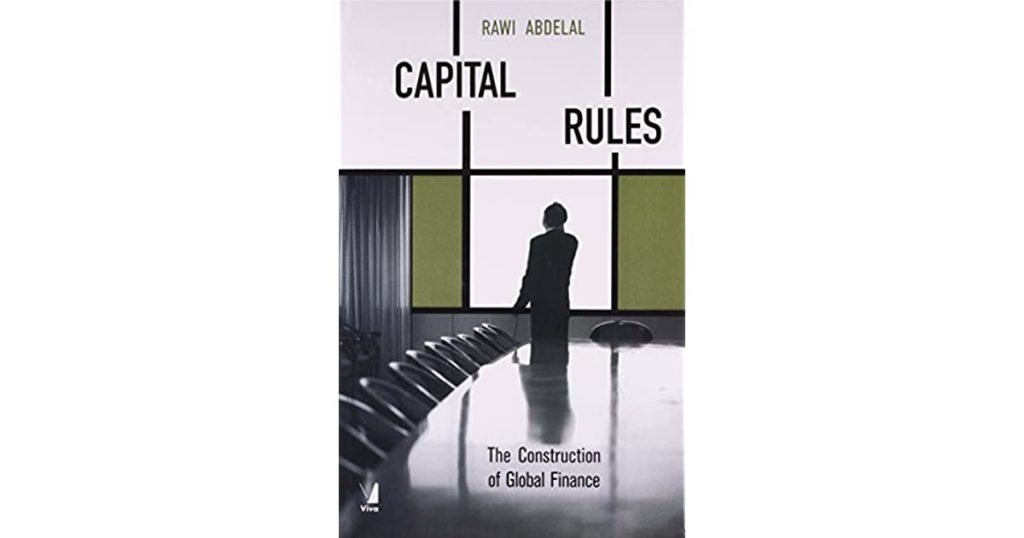
Given the USofA’s dominance in the world from the end of the second world war to the inauguration of the war on terror, and given America’s influence on media and its desire to be seen as the only State that really matters when it comes to, well, everything, it’s not surprising that a lot of examinations of capitalism, in whatever iteration, have focused on the USofA. From the influence of Milton and Rose Friedman, to Naomi Klein’s brilliant takedown of “disaster capitalism” in The Shock Doctrine, to John Perkins’s Confessions of an Economic Hitman, there’s a whole lot of “USA! USA! USA!” going around.
Pierre Laval and Christians Dardot do an excellent job of filling out the picture in terms of European influence on neoliberalism (and how neoliberalism impacts European nations), but Rawi Abdelal’s Capital Rules really does an excellent job of showing the critical importance for neoliberal globalization of three groups, the European Union (EU), the Organization for Economic Cooperation and Development (OECD), and the International Monetary Fund (IMF). In each of these cases, Abdelal emphasises the importance of non-American State parties—especially France and Germany—in the development of neoliberalism. He also demonstrates how neoliberalism came about, not because some nefarious neoliberal thinktank had everything plotted out from beginning to end, but because of various local and international dynamics, crises, alliances, and commitments, that slowly ended up producing the world we live in today. It’s a fairly dry work, and I sometimes wonder if Abdelal doesn’t give American influence enough credit (especially when it comes to the workings of the IMF—although his point that America preferred to just unilaterally do whatever it wanted to do, instead of vesting power in some international consortium, is well made), but I found it to be very useful for developing a more global perspective and for also understanding the transnational and and supra-national legal institutions and treaties that do the enforcement work of neoliberalism.
5. A World Without Police: How Strong Communities Make Cops Obsolete by Geo Maher.
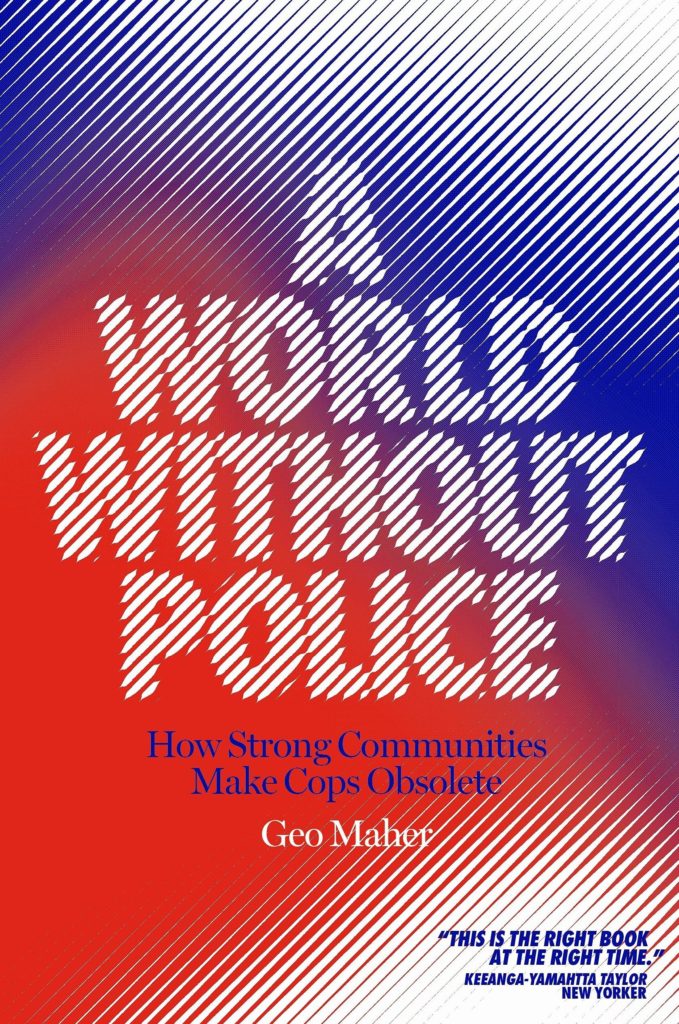
Geo Maher is a talented scholar with a lot of on-the-ground experience as a member of resistance movements in the United States and Venezuela. A World Without Police is his latest book. In it, he reviews the (overwhelmingly convincing) case that the police exist in order to enforce White supremacy and discipline wage labourers and the subproletariat. Policing, however, has become a rationality, a way of structuring society and so we have witnessed the rapid expanse of the domains where the police operate—there are transit cops, school cops, university cops, rent-a-cops, border cops, global cops. Increasingly, we live in a world that thinks through pig-coloured glasses but, as Maher repeatedly emphasizes, it is uniformed cops who are the glue that hold all of this together.
From this overview, Maher then reiterates a number of arguments, using an abundance of examples., to demonstrate that the police actually make communities less safe, actually increase the likelihood of vulnerable or oppressed—youth, people with mental illnesses, racialized people, Queer folx, sex workers, people deprived of housing, people whose meds are criminalized, women—being injured or killed with impunity. And, as study after study has shown, police do not prevent crimes from occurring and, more often than not, don’t solve serious crimes either. So, this is not a good situation but, making it worse, is the fact that the police are fundamentally unreformable. Maher spends some time explaining why this is the case. Campaigns for police reform just end up being diverting and used to restore some sense of legitimacy to policing when the confidence of the public has been shaken (insert reference to Berlant’s thesis on “cruel optimism”). The object of reform is not to repair policing; it is to repair the public’s perception of policing.
To truly break police power, Maher argues, requires us to understand the role played by Fraternal Orders of Policing, Benevolent Associations, and Police Unions. These organizations work behind the scenes to entrench police power at all levels of the State, to blackmail cities into every-increasing police budgets, to protect any and every cop who faces scrutiny, and to ensure collective bargaining and legal impunity for cops. Again, Maher provides a lot of illustrations to show how all of this plays out. The average cop is probably an idiot, but the people involved here are pretty damn smart. And ruthless.
So what does a community without police look like? Chances are we already know, Maher says. When we are with family and friends, we don’t tend to call cops to resolve conflicts. We have ways of being in relationships with our loved ones that make the cops unnecessary. What we want to do, then, is also structures our broader communities in a way that make cops obsolete. It means building up neighbourhood networks of mutual trust and care. It means finding ways to keep each other safe that don’t simply mimic class-and-race based neighbourhood divides. It means maintaining constant vigilance against the various ways in which efforts like these can be co-opted by a pig-mentality, a carceral logic, and border imperialism. It means building society anew from the bottom up, and taking back the power that we already have.
6. How to Blow Up a Pipeline by Andreas Malm.
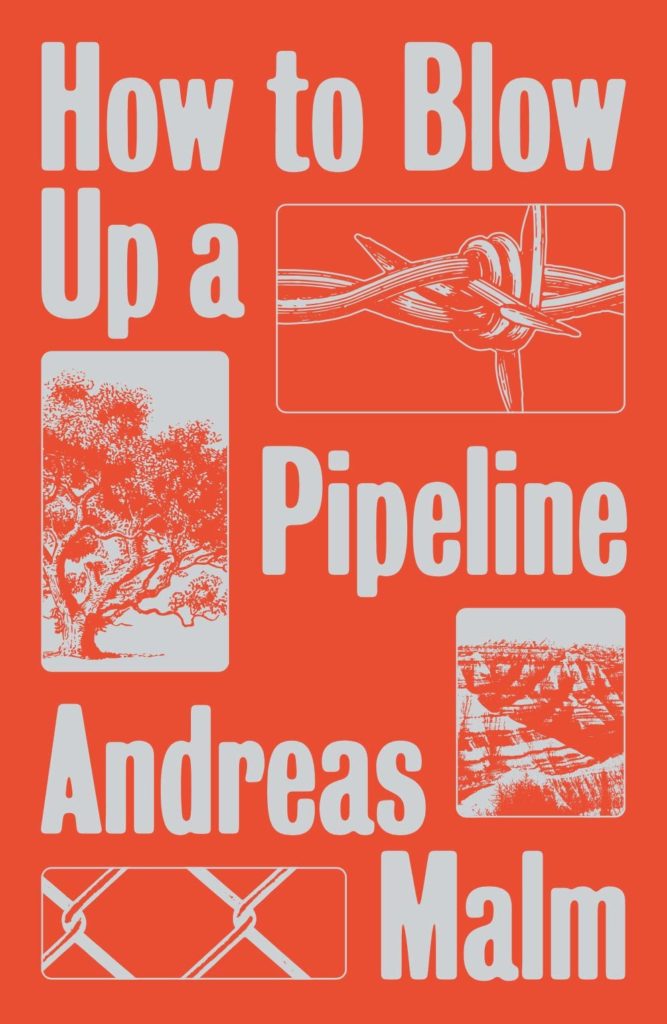
It is undeniable that drastic and immediate action is required of we are to try and minimize the devastating impact that climate change has and will continue to increasingly have on all of life on earth. The evidence is massively overwhelming. In every area, study after study after study—from glaciologist in the Himalayas to entomologists studying insect population levels in Europe to orinthologists monitoring songbirds on Turtle Island to oceanographers tracking ocean levels, currents, and salinity, to name but a very, very few—demonstrates that things are getting massively fucked, that they will get exponentially more massively fucked if we continue on our current trajectory, and that, although we won’t be able to unfuck a lot of things that have now been fucked or that are about to be fucked, we still can do things that would make a very dramatic and, in many cases, life-saving difference.
But we don’t do those things. Millions of people want those things to be done but, alas, power is concentrated in the hands of a very few people who are very rich and very powerful. It is they have been enriching themselves on everyone else’s dime, it is they who have been destroying the world, and they give zero shits about changing their ways. Why change? That might make them lose billions. But if things continue on, they will gain billions. So fuck the world.
So how can we change this? Andreas Malm has spent his life pursuing this kind of change and he has some worthwhile thoughts in this regard. He raises important questions about boundaries that are established via legal codes or moral discourses about “nonviolence” and he explores strategies of escalation and the value of deploying a diversity of tactics. He also does a strong takedown of a lot of the poseur Left (what’s up, Extinction Rebellion, where you at now?). Malm is thoughtful, engaged, experienced, knows his history, understands the stakes, and offers a real way forward past our (all-too-often all-too-bourgeois) despair. Recommended reading. Especially for pacifists.
7. Object-Choice (All you need is love …) by Klaus Theweleit.
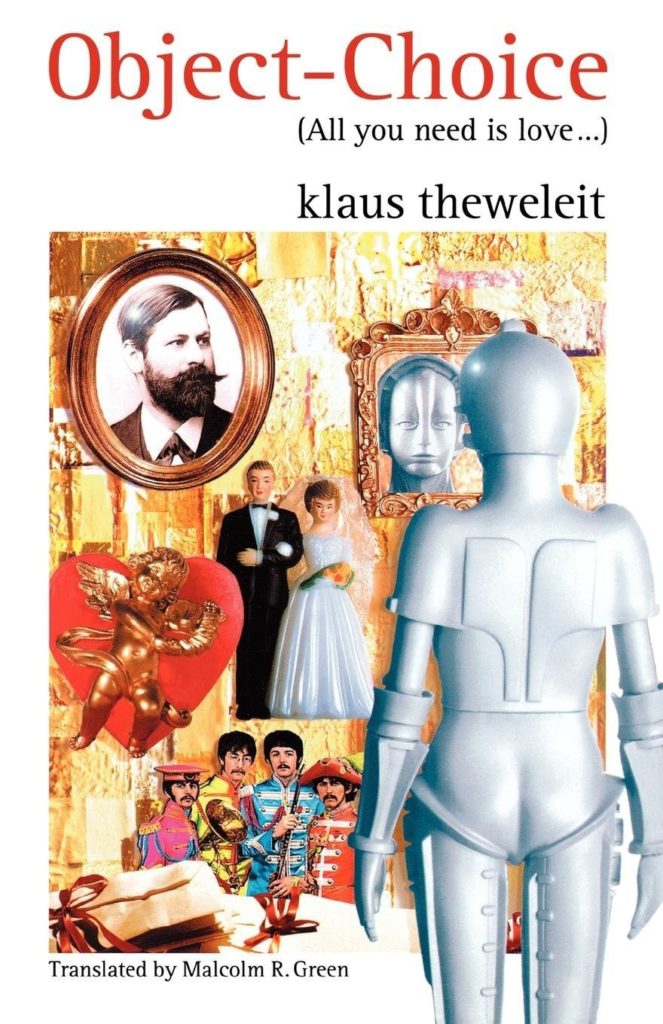
Klaus Theweleit’s two-volume series on the nexus between fascism and misogyny, Male Fantasies, is one of the most fascinating, creative, and fun books I have read in any genre. As far as I know, Object-Choice is the only other Theweleit book to be translated from German to English (if someone knows of an English translation of The Book of Kings, send me the link!). It’s a very brief examination of love and marriage through the register of Freud’s take on narcissism and object-choice but done in a way that deconstructs Freud’s categories based upon the various relationships Freud had with women. It was entertaining but, in my opinion, Theweleit is at his best when he can sprawl all over the place, fill the pages with pictures, chase all the rabbit trails, and then share what comes from it all.
8. The Hero’s Way: A Walk with Garibaldi from Rome to Ravenna by Tim Parks.
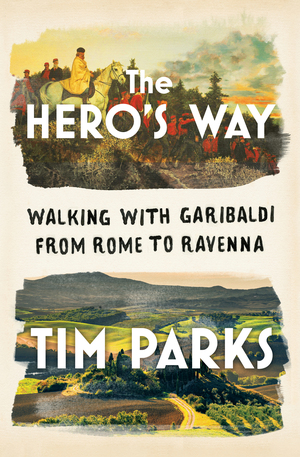
After falling deeply in love with the novels of W. G. Sebald and Robert MacFarlane, I’m appear to be especially drawn to books written by people who go for long walks. Tim Parks is such a person and he and his partner, Eleonora Gallitelli, retrace the steps of Garibaldi from Rome to the coast. It’s a pleasurable read, and Parks does a good job of blending his walking experiences with reflections on the various histories about Garibaldi’s flight in 1849. Taken on its own, it’s a decent enough book. Just don’t compare it to the writings of Sebald and MacFarlane.
9. Sync: How Order Emerges from Chaos in the Universe, Nature, and Daily Life by Steven Strogatz.
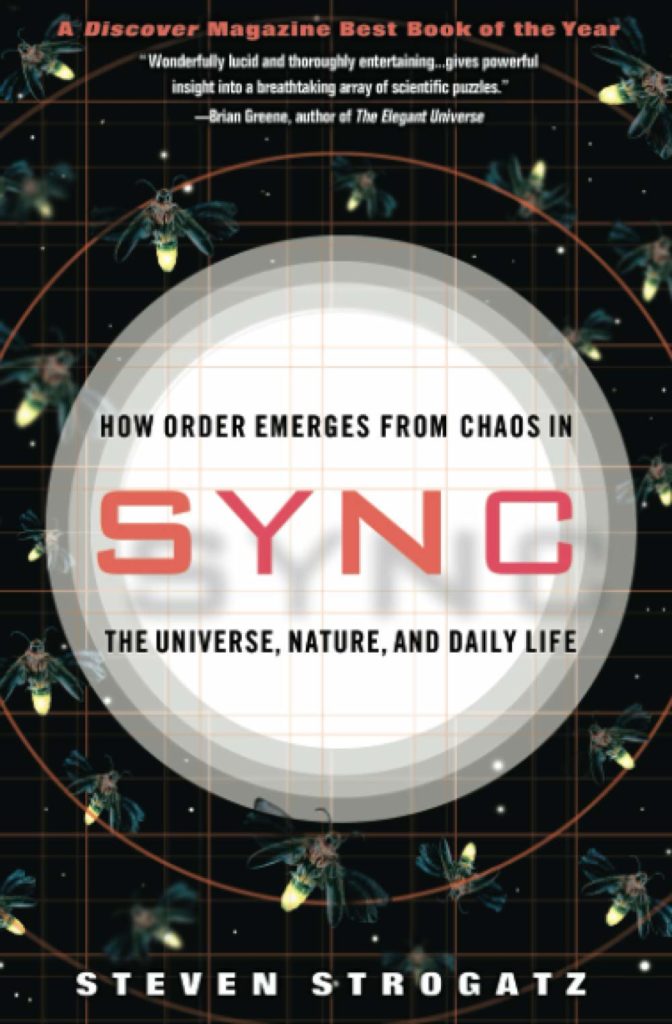
I’m only about twenty-five years behind the chaos theory bandwagon—much of which developed into nonlinear systems analysis. Steven Strogatz, a brilliant mathematician who is somehow also able to communicate with laypeople like me, is an expert in this field and is especially interested in the seemingly spontaneous emergency of synchronicity, not only in the domain of animate things—like thousands of fireflies flashing in synch—but that also emerges in the domain of inanimate things—like pendulums synchronizing themselves with each other—or in component parts of other things—like the pacemaker cells in our heart. It’s a fascinating topic and Strogatz presents it in a way that is comprehensible to the non-specialist. I feel like I’m very much just barely touching the tip of a very large iceberg when it comes to this topic.
10. On Time and Water by Andri Snær Magnason.
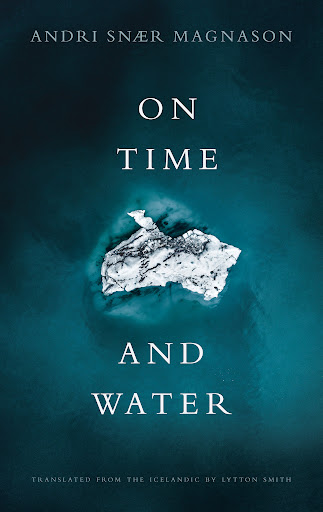
Hegelians are found of saying that the owl of Minerva flies at dusk. By this, they are essentially saying that wisdom only comes to us belatedly, after the events of the day, after the fact. Only at the end of history can we look back and understand history (a rather different take than that of Walter Benjamin who sees the Angel of History—Paul Klee’s Angelus Novus—as looking being blown backwards into the future and forced to look back on a history that is an ever-growing mound of rubble and devastation).
I’ve been thinking about this quote a bit lately (and about Benjamin’s variation), after reading Magnason’s sad and beautiful and mystical and scientific book, due to the recent proliferation of all kinds of books like this. Books about nature, the human connectedness to nature, the ways in which we are a part of nature, and all the really beautiful components of nature—oceans and tigers and bacteria and plate tectonics and snow leopards and forests and fungi and glaciers and on and on it goes. Given the dramatic shifts that are occurring within our climate due to actions taken by rich and powerful people, given the Sixth Great Extinction of Life on Earth that has been initiated and escalated by rich and powerful people, I can’t help but think of Hegel. If Europeans can only understand history when it arrives at the end, so, too, it seems that all of us living in the shadow of Europe’s legacy can only understand nature when we arrive at its end.
Not, of course, that we have the capacity to end The Nature in toto. We can just end nature as we know it. And slaughter everything that we have been given to love. That’s all.
11. Cyclonopedia: complicity with anonymous materials by Reza Negarestani.
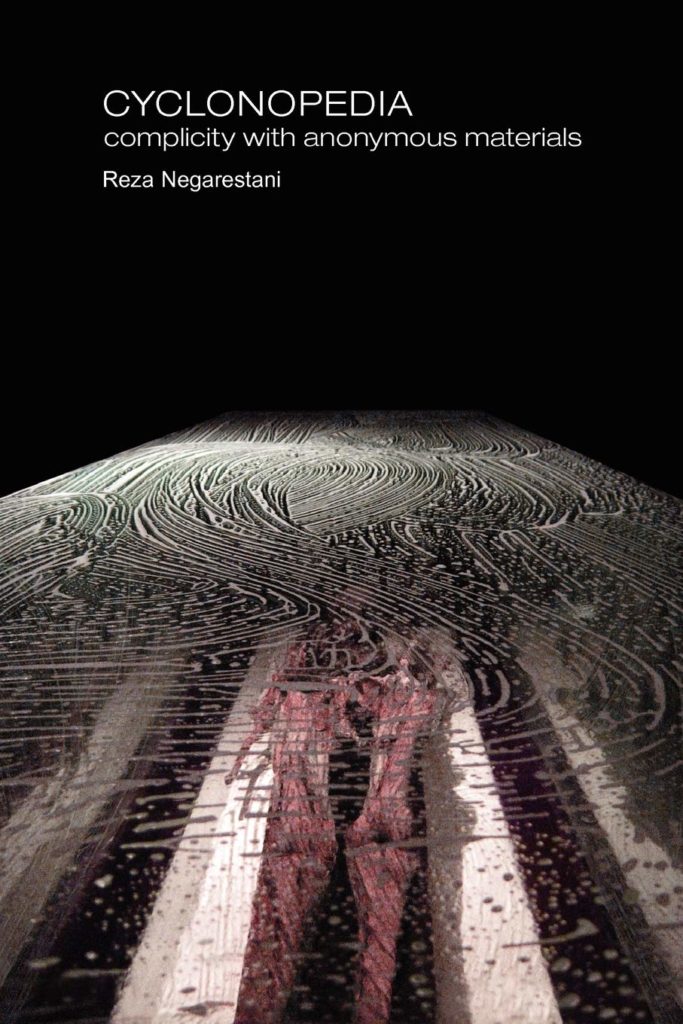
Beware of marketing departments who make claims about novelty! Reza Negarestani is credited with inventing the genre of “theory-fiction” with this book but the genre isn’t really all that different than any other variant of soapbox fiction. It’s not so much a story with a plot, well-developed characters, conflict, and resolution, as it is Negarestani what he thinks about all kinds of things that people don’t usually think about in a mashup of Deleuze and Gautarri, H. P. Lovecraft, nineteenth-century grimoires, and a commentary of Middle eastern geopolitics and the global dependence on oil. As this list suggests, Cyclonopeida is an extraordinarily creative text and I was highly entertained by its what-the-fuckery for a good while but, by the final third, I was ready for it to be over.
12. The Society of Reluctant Dreamers by José Eduardo Agualusa.
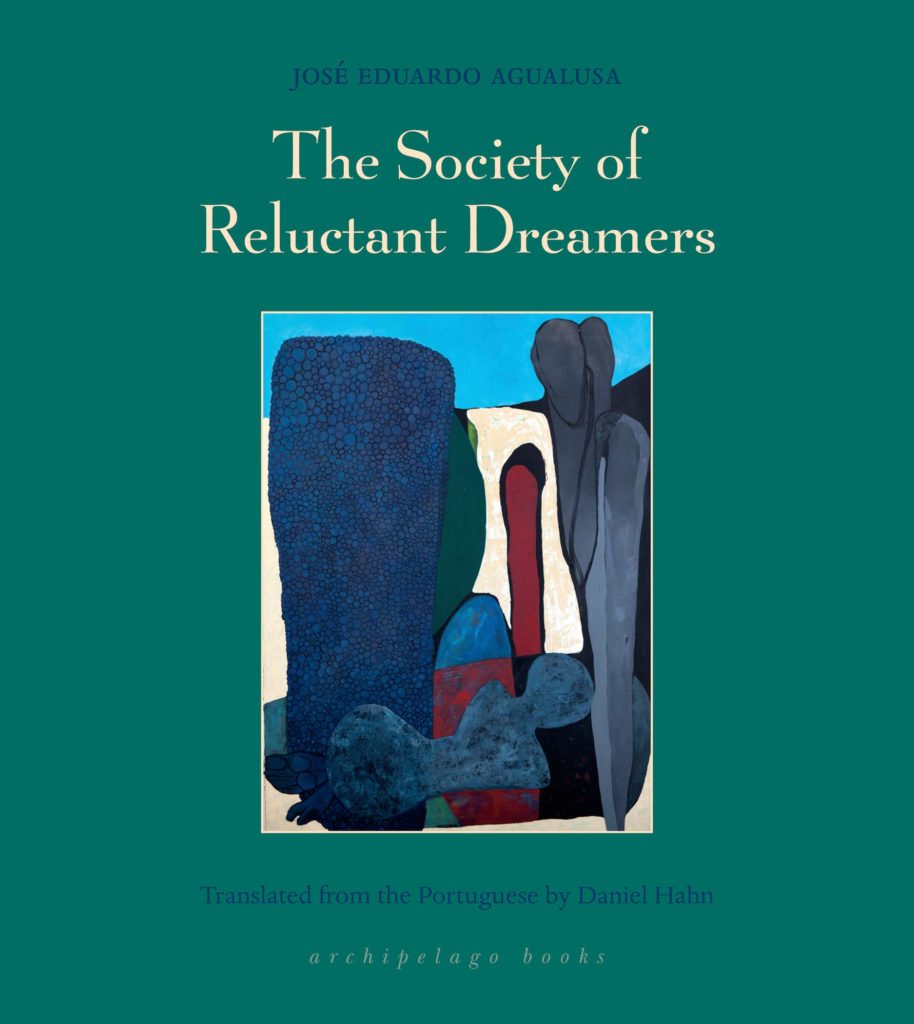
I’m starting to get a bit bored of the template of The-Well-Written-StoryTM. Move non-chronologically. Connect characters across generation in vastly different spaces or context. Show don’t tell. Trust the intelligence of the reader. All the story to bring some kind of smart and affective experience to hot button sociopolitical or cultural issues. Essentially, it’s the template of The-Great-European-NovelTM recreated within our context and in light of contemporary cultural fads and sensibilities. Think Oliver Twist only it’s the story the descendant of Black slaves brought to the USofA. The Brothers Karamazov but amongst homeless youth producing a play in an empty factory in post-Soviet Ukraine. Et cetera, et cetera.
That’s partly why I’ve been seeking out storytellers who play with the structure and form a little more. This play can go too far for what I find pleasurable (those who follow in the footsteps of Joyce and his way of deconstructing the novel just don’t do it for me), but I do find a lot of those who play with magical realism or surrealism, while also working in elements of auto-theory or documentary fiction, are positioned in a personal sweet spot. José Eduardo Agualusa’s work, The Society of Reluctant Dreamers, really nails this. A work situated in the immediate aftermath of the Angolan revolution against Portuguese colonization, it is like reading Fanon mixed with Borges. I immediately looked up Agualusa’s other work after finishing this one.
13. Belladonna by Daša Drndić.
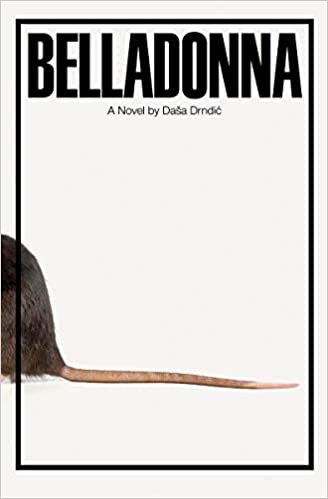
What is the relationship of fiction to truth? Of story to history? Of language to reality? Of the present to the past? Of living to dying? Of being in relationship with others to bearing witness to, well, to what? These may seem like dry or theoretical questions, largely irrelevant to the average person living their day-to-day life, but Daša Drndić’s writings compel the reader to ask them and make the reader feel the force of them. It is precisely in our day-to-day life that these things are most present, like an itch, like a wound, like a cloud across the sun. Drndić just can’t forget in the same way as most people. She can’t even desire to forget in the same way that most people desire to forget. She is haunted, not by ghosts, but by facts. Not just fascist Germany, but all the little death camps, all the day-to-day death camps, all too-small-to-notice death camps, that have proliferated over the twentieth-century, continually intrude into her work. She is haunted not only by the Angel of Death that presided over Auschwitz, but also by the Angel of Life that persists afterwards. And, perhaps, these two Angels are one and the same. And now, I think, I will be haunted by her. Onwards, to her next book!
14. The Case Worker by George Konrád.
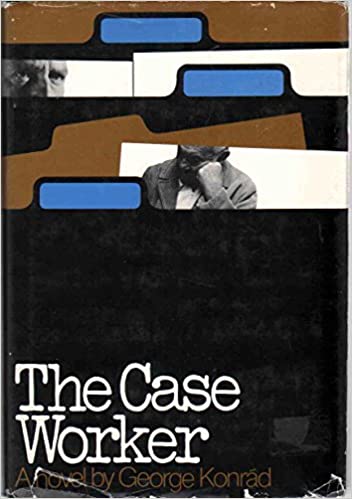
For several years, I have flirted with the idea of writing a novel based upon my decades of experience working within the social services wing of the non-profit industrial complex. I’ve never been able to start it because I haven’t been able to determine the genre (absurdist tragedy? comedy? Memoir-like realism?) and, to be honest, I’m not sure where I would even start with it. However, when I found out that there was a highly-praised novel about a Case Worker (i.e., social worker) in post-WWII Hungary, I was excited to read it. It was excellent. Konrád captures a lot of the absurdity, tragedy, banality, violence, and bureaucracy involved with case work (and “plus ça change, plus c’est la même chose” definitely applies here). The tone and affect feels like a Central European mash-up of Camus and Paul Beatty. Good times.
15. The Death of Vivek Oji by Awkaeke Emezi.
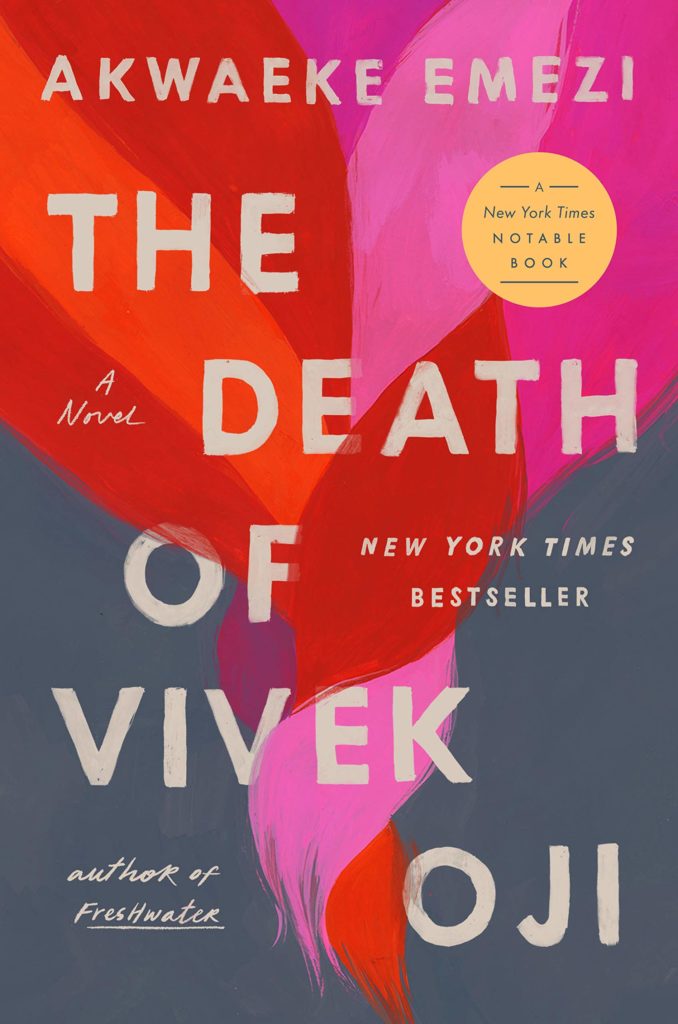
Nigeria is an international powerhouse when it comes to producing great literature. From Chinua Achebe’s genre-defining Things Fall Apart, to Ben Okri’s Famished Road, and more recent works by Chimamanda Ngozi Adichie and Teju Cole, Nigeria has been producing phenomenal English-language authors for three quarters of a century. So Awkaeke Emezi is in good company—and they belong in this company. I first learned about Emezi when I came across her award-winning work of young adult speculative fiction, Pet, about a trans girl (Emezi, themself, is non-binary). So, I looked up her adult-oriented fiction and read The Death of Vivek Oji, a fictional exploration related to what it is like being Queer and young in Nigeria. It’s a tenderly-written story, prompting feelings of love and rage, and hope and devastation. I enjoyed it very much.
16. A Touch of Jen by Beth Morgan.

I’m still looking for a novel that is classified as “horror” that I find creative, exciting, and intellectually-stimulating in the same way that some really well done horror movies can do. A Touch of Jen had some literati hipster buzz so, what the heck, I thought I would check it out. It was… hmmm… I’m still figuring out how I felt about it. On the one hand, at the affective level as a horror novel—where it tries to be horrific in the more traditional sense—I felt a bit disappointed. On the other hand, as a commentary on the ubiquity of misogyny and the ways in which male violence against women extends far beyond the domains that receive the most media attention, it was very cleverly done. The monster may not be the beast from another dimension that grows ever-stronger as it feasts on human blood. It may actually be the socially awkward dude who works with you and ends up crushing on you. True that.
17. While the Earth Sleeps We Travel: Stories, Poetry, and Art from Young Refugees Around the World edited by Ahmed M. Badr.
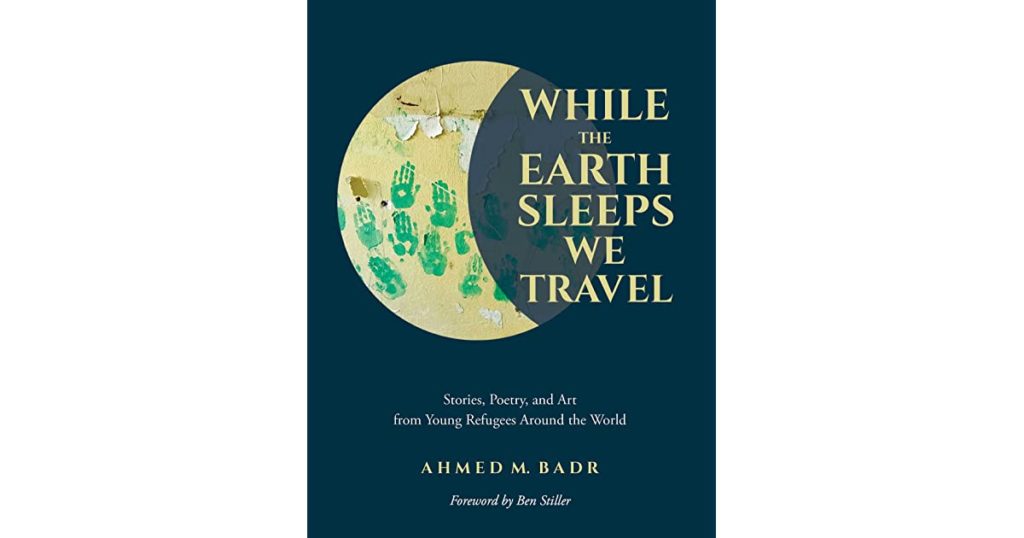
Ahmed M. Badr is a refugee who has networked with other refugees who use their art to centre the experiences and perspectives of refugees when it comes to talking about this-or-that refugee crisis. I enjoyed reading the poems and interviews, and looking at the art, presented in this work. Regular people caught up in the regular struggle of trying to figure out how to care about themselves and others in a world where not-caring has been regularized. Much respect to all of them.
18. Selected Poems by Langston Hughes.
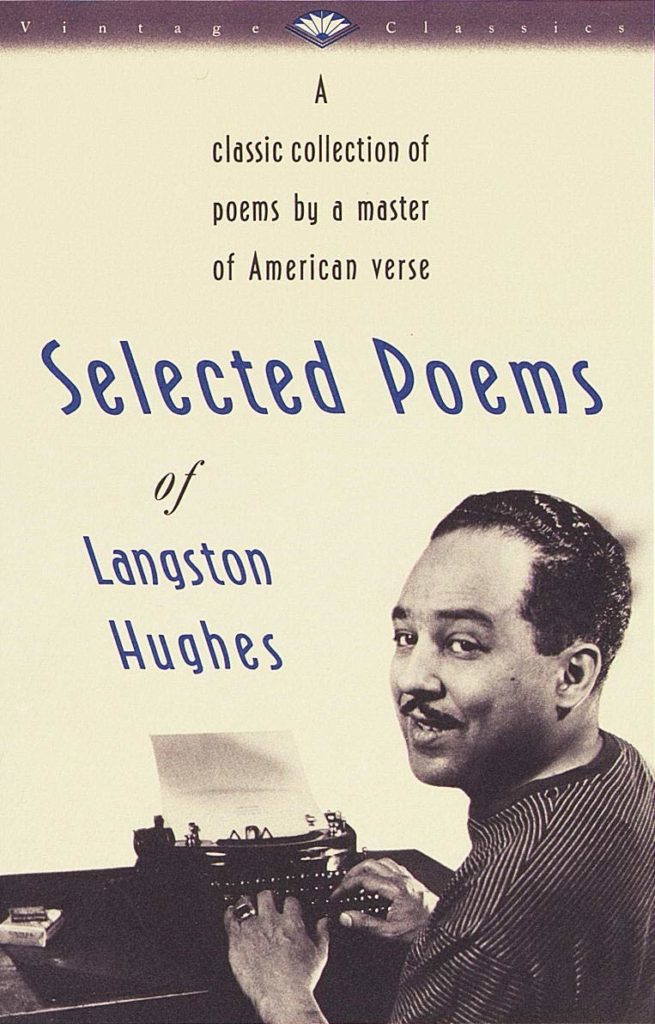
I haven’t had this much fun reading a poetry collection since, hmmm, reading Shel Silverstein as a kid, maybe? (In fact, it seems to me that Silverstein actually borrows his rhyming patterns from folks like Hughes and others who were singing the Blues, but that’s beside the point). Hughes is lyrical, he’s humourous, but he’s also ruthless. He makes you laugh as he lacerates you with the truth. This is an excellent collection—a collection Hughes himself picked out—and I highly recommend it.
19. Romanian Poems by Paul Celan.
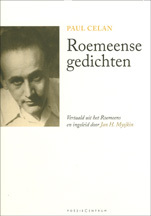
I find some poets overly cryptic.
20. Austerity Measures: The New Greek Poetry edited by Karen Van Dyck.
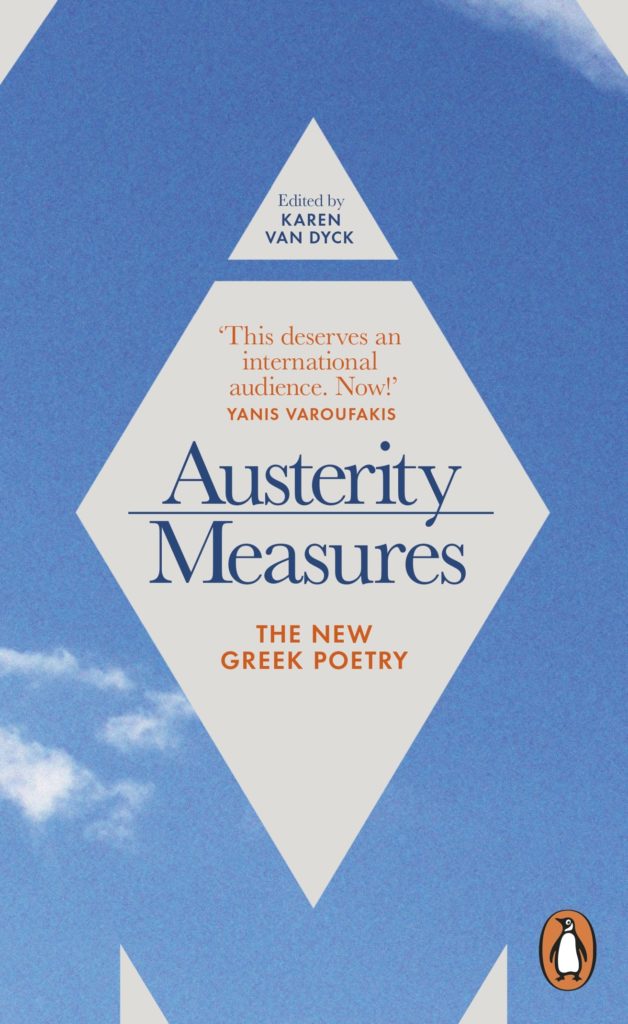
Greece was one of the nations most gutted by the regime of austerity that the European Union forced upon member States in the hyper-escalated and ruthless variant of neoliberalism that followed the global market crash of 2008 (or, more properly, 2007-2010). However, parts of Greece also have a long history of militant resistance to State repression and the pursuit of DIY-culture and practices of mutual care. The Exarcheia community in Athens, which now goes back almost fifty years, is probably the most widely known example. Austerity Measures is Karen Van Dyck’s effort to try and show how these dynamics have influenced Greek poetry over the last few decades. That’s her claim, anyway, but I don’t think the book achieves exactly that. It’s a fun compilation of poets born after 1980 (with some exceptions, actually several exceptions) whose success, as poets, hasn’t been strictly determined by the academy (a few gained prominence in street culture, many more gained prominence by learning how to market themselves online). Connecting a lot of this content to austerity seems like a considerable stretch, although the connection is obvious in some cases. However, given that I know nothing about contemporary Greek-speaking poets, I still enjoyed working through the collection. I took down a few names to seek out to read in more detail.
21. Voodoo Hypothesis: Poems by Canisia Lubrin.
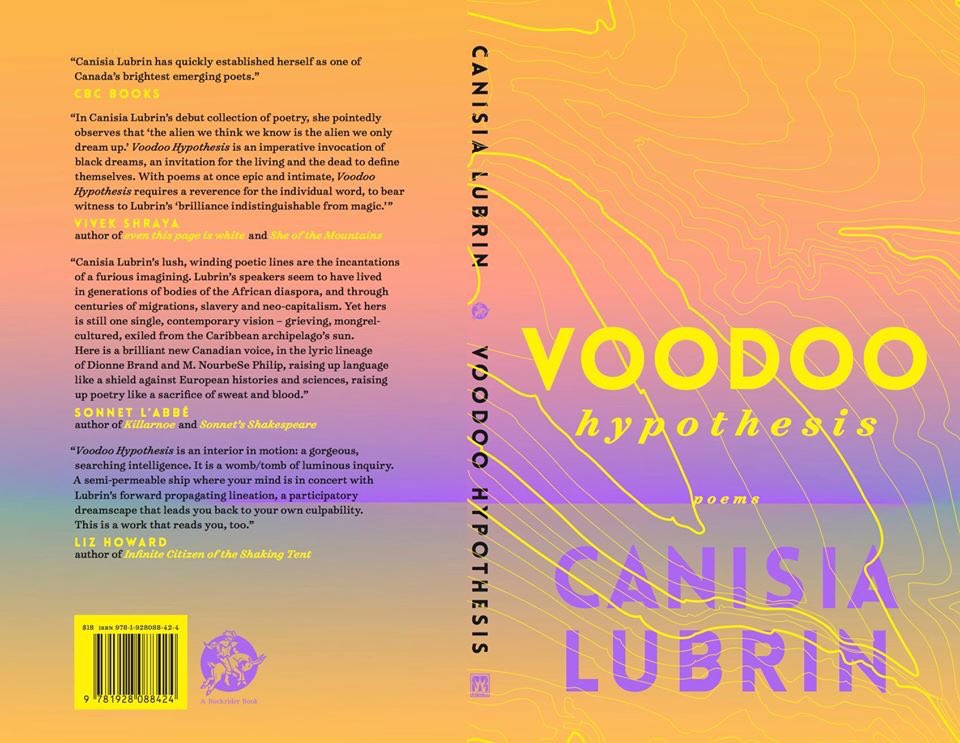
Voodoo hypothesis received some high praise from some authors I enjoyed reading. According to its publisher’s blurb the book is “a subversion of the imperial construct of “blackness” and a rejection of the contemporary and historical systems that paint black people as inferior, through constant parallel representations of “evil” and “savagery.”” What’s not to like about that, right? Well, I don’t like the fact that the publisher doesn’t capitalize the words “Black” and “Blackness” (for more on that see here: https://cssp.org/2020/03/recognizing-race-in-language-why-we-capitalize-black-and-white/), but the book itself sounds solid. And, in its own way, it is. But poetry is such a subjective experience for the reader in search of an affect and I found myself mostly missing the boat in this one.
Movies
1. Pig (2021) directed by Michael Sarnoski.
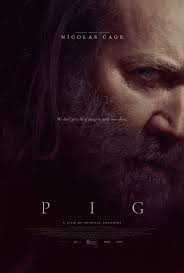
Pig doesn’t go where you expect it to go. It seems like a set-up for Nicolas Cage to lose his shit. Because we all love it when Nicolas Cage loses his shit. Think Mandy or The Wicker Man. Only this time he lives in the woods with a pig and hardly speaks at all. But then the unexpected happens. Slowly it dawns on the viewer that, although all the pieces are there that would lead to an explosive breakdown in any other Nicolas Cage movie, the explosion keeps not happening. Instead, we actually end up with something entirely unexpected—a meditation on grief and loss. Because all the characters in this film are marked by a loss that they have been unable to grieve through to the end (or telos—because the end of grief is not always the total cessation of grieving). And, it turns out, it is only when grief can finally be experienced in its fulness, only when we stop running from our grief and repressing our grieving, that we are able to arrive at the truth.
Furthermore, I would be remiss if I only mentioned Nic Cage because Alex Wolff (of Hereditary fame) also does a fantastic job in his role. Wolff starts out looking like a one-dimensional character but then becomes much more human. And, thinking about Wolff draws out a significant component of Pig. Pig isn’t about grief and loss in general—it is actually about the ways in which cis-het men, in our culture, navigate grief and loss. What happens when men become trapped in grief? What avenues of escape are available to them? Stoic suffering (Cage who lost his partner and then his pig), filling life with status symbols (Wolff who lost his mother and also his relationship with his father, and also David Knell’s character who lost his dream job), or violently dominating all others (Adam Arkin, the film’s antagonist, who lost his partner and also his relationship with his son). What enables these men to find a way to journey through their grief and arrive at the truth? They cook for each other and eat together. They become angry with each other but that anger does not destroy their friendship. They weep together and comfort each other. The learn to speak honestly. What a surprisingly wonderful film.
2. The Green Knight (2021) directed by David Lowery.
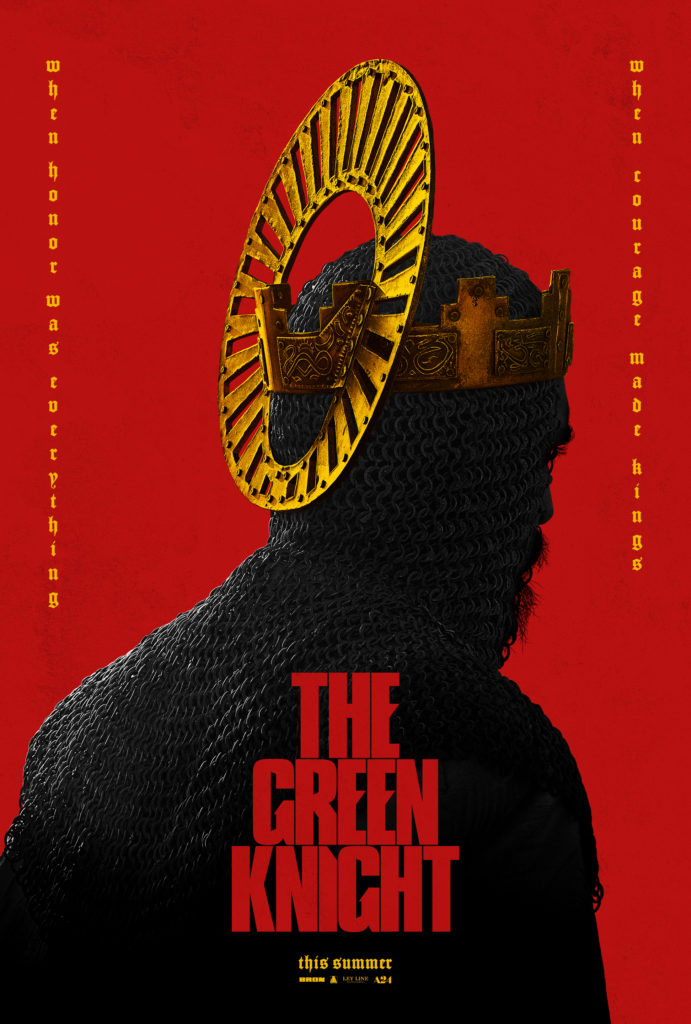
[Major spoilers! Watch the film before reading this. It’s worth it.]
Aesthetically, The Green Knight ticks all my boxes. As a child, I lived in a lot of different medieval fantasies—from The Lord of the Rings, to Howard Pyle’s Robin Hood and Men of Iron, to Robert Louis Stevenson’s The Black Arrow, back to Tolkien’s rendition of Sir Gawain and the Green Knight—I had a very rich imagination and, as a result, found that movies often failed to live up to my expectations. But, in scene after scene, David Lowery perfectly and beautifully brings to the screen the awe, beauty, grit, and magic that adults all too often (and against their will) leave behind in their childhood. And he does this with a Brown actor, Dev Patel, in the lead role of an Arthurian legend. It’s truly fantastic.
That said, it is worth critically engaging the overall “message” of the film. What does the Green Knight tell us about life? Well, Patel’s character, Gawain, learns to overcome his fear of death and accept the transience of life. If this is not enlightenment it is at least a form of transcending acceptance that produces contentment in the face of death. How does Gawain come to this conclusion? By having a vision of his life and coming to understand that everything that people value—status, wealth, power, strength—is fucking bullshit and does not, in any way, prevent grief and loss from occurring, does not make you feel any less of a fake or a poseur in life and, ultimately, does not stop death from coming for you. Paradoxically, then, Gawain (who isn’t actually even Sir Gawain yet) proves that he deserves to be treated as an heroic knight, by honourably keeping his word and looking death fearlessly in the eye, precisely when he fully understands that everything that knights stand for his worthless. As King Arthur tried to warn him much earlier, in a sentence with layers of meaning, “it’s only a game.” For Arthur, and others at the round table who survived into old age, it seems that recognizing it is only a game means they took the road Gawain imagine as an option when he considered fleeing death—and they made their peace with that. For Gawain, however, the recognition that it is only a game is more traumatic—learning that the men he has idolized are no less full of shit than he is, leads him to drop out of the game altogether. “Now, little knight, off with your head,” as the Green Knight says in the closing scene.
If The Green Knight is “a uniquely millennial morality tale” (as Vinnie Mancuso argues here) what is the tale it tells? Well, it aligns with millennials who have realized that all the promises that were dangled in front of their eyes when they were coming of age, all of the promises that made them work hard, go and get degrees, and learn to adult, were bullshit. Siberia is burning, nobody but nobody can afford to buy a house, the rich are engaging in space tourism, and the rest of us will be passing on our student loan debt to our children. What the fuck. In response to this, The Green Knight appears to posit a resigned acceptance that offers contentment in the face of our collective death in the Sixth Great Extinction of life on earth. Which, to be honest, is also bullshit. Such acceptance fits just fine with all the other bullshit which is why the Green Knight finally refers to Gawain as a knight at the end of the film. Enlightened resignation to death doesn’t actually get you out of the game. It just gets you dead.
But there is another more subtle subtext running through Lowery’s film. The hinge of the film is a two-sentence exchange between Gawain and the Green Knight.
Gawain: Is this all there is?
The Green Knight: What else ought there be?
The rest of the movie reveals Gawain’s dawning revelation that, shit, I can’t think of anything else. But, and this is the critical piece, it’s not because other options aren’t available—it’s that Gawain (whose view also dominates the view of those watching the film) just cannot imagine them being options. The most obvious example of this is offered to Gawain by Essel, the sex worker played by Alicia Vikander, when she asks him why he won’t marry her. Nephew of King Arthur, heir to the throne, Gawain simply cannot imagine marrying his playmate from the brothel. He’s still too invested in the game. His trajectory would be unimaginably different were he to marry Essel. But it’s one possible escape route.
Another possible escape route is offered to Gawain by the Lord and Lady of the (magical?) castle where Gawain stays prior to arriving at the Green Chapel. The Lord (who is actually also The Green Knight!) and the Lady (who is also played by Alicia Vikander, and who thus offers Gawain his Essel in another form!) invite Gawain to give up his quest and stay with them in their idyllic setting. The Lord gently questions and laughs at Gawain’s talk of honour, the Lady quickly shows Gawain that his talk of honour is just that—only talk. This doesn’t stop the Green Knight from taking Gawain’s head in the end; it just shows that the Green Knight has decided that if “it’s all a game,” then he’s just going to have a whole lot of fun playing it. It also shows that Gawain misses another escape route.
A third possible escape route is offered to Gawain when he first sets out on his quest. He arrives at a crossroads. Nobody is around for miles—nobody, that is, except for the skeleton hung in a cage next to the road Gawain chooses to take. In other words, Gawain has four options of routes he could take—he could return the way he came, he could go in two other directions, or he could journey onwards towards death. Again, he cannot imagine going any other way but towards death. “What else ought there be?” Who knows? He didn’t choose the other roads.
Thus, if The Green Knight is a morality play for millennials, I think its lesson has less to do with an enlightened acceptance of death given the bullshit of everything we were taught to hope or dream for, and more to do with the ways in which neoliberal rationality disciplines our imaginations so that we cannot imagine any other worlds or ways of being. This, too, is a game that posits itself as all-encompassing and that claims us and reincorporates us into it, even as we claim to transcend it. The trick for us, then, is to find the lines of flight that it cannot imagine.
Documentaries
1. Framing Britney Spears (2021) directed by Samantha Stark.
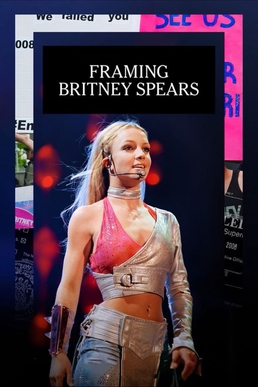
In 2020, Britney Spears shared a post on Instagram that called for labour strikes and a redistribution of wealth. Immediately embraced by the radical Left, she was rebranded as “Comrade Britney.” Truly, the hero we deserve in these austere times. But, it turns out, all was far from well in Britneyland. After daring to show emotional and mental distress in public back in 2007, when her former partner was refusing to permit her to visit her children, Britney lost control over both her own body and her finances. Her father, a very absentee father who was always very explicit about only caring about himself and using Britney’s fame and fortune to get things he wanted (mostly, it seems, boats and booze), was made her Conservator and had full power over her. However, after some years passed, some of Britney’s fans began to read her tweets and Instagram posts as coded cries for help. A movement to “Free Britney!” arose and actually succeeded in bringing considerable attention to her captivity and the ways in which her conservatorship, a legal designation assigned to people who were determined to be fully incapable of caring for themselves (think seniors with an advanced case of Alzheimer’s or Dementia), was actually being rebranded as a “business partnership” with massive amounts of money being funneled off by Britney’s dad and his temporary legal partner. As this documentary shows, the whole thing stunk to high heaven (or, as Comrade Britney might say, it stunk of patriarchal capitalism). So the Free Britney people organized and, as of today, Britney has recovered control over her body but not yet over her finances. However, her father has been removed as her conservator. ¡Hasta la Victoria siempre, Britney!
2. McMillion$ (2020) directed by James Lee Hernandez and Brian Lazarte.

Between 1989 and 2001, all the big winner prizes in McDonald’s Monopoly were actually stolen by Jerry Jacobson, the head of the security agency in charge of the operation, and distributed through a network of handlers to various people who agreed to pose as prize winners (and who actually ended up pocketing very little of the money themselves once taxes were deducted and kickbacks were provided to the handlers and “Uncle Jerry”). It was a remarkable scam (you had a zero percent chance of winning a big prize in the USofA for twelve years!) and it was only discovered due to an anonymous call placed to the FBI and a larger-than-life FBI agent who decided to follow-up on it. This six-part docuseries drags things out a bit but the story along with several of its characters was sufficiently entertaining to hold my attention all the way through.